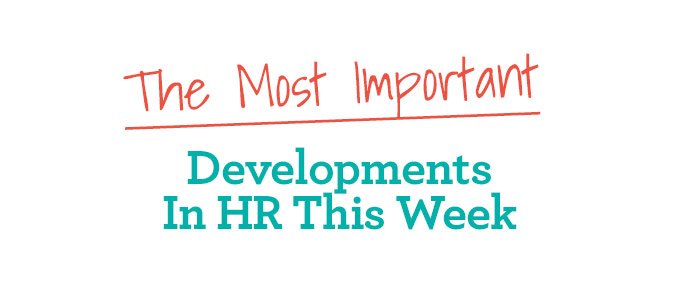
The Mars landing this week got us thinking about the future of work, just as lots of reports are coming down the pike about how tech is changing the workplace big time. McKinsey predicts a loss of 7.1 million jobs, mainly in routine, white-collar office functions, due to increased automation. Deloitte’s Global Human Capital Trends report predicts increased use of contractors and freelancers vs. full-time workers as tech enables companies to be more productive with fewer staff. And the PwC voice of doom says: “HR as we know it vanishes, replaced by automation, outsourcing, and self-organizing teams.” Whoa there, PwC. HR’s not dead yet. But savvy CHROs should be staying on top of new tech trends for HR and concentrating on what technology can’t — the employee experience, from initial contact to the last day on the job and beyond. Finextra


Well, this is the Riddle of the Sphinx for HR. Do you want the NLRB to sue you on behalf of a racist or misogynist, or do you want the EEOC to sue you on behalf of someone harmed by a racist or misogynist? It’s prompted by a case in which a company fired an employee for yelling racial slurs at workers brought in to cross a picket line. A cut-and-dried decision, right? That guy’s got to go. Wrong. An appeals court ordered the company to rehire the man, with back pay. That decision led those two agencies to work together on what, exactly, constitutes harassment under federal law. Never reached an agreement, though. Union activity continues to be a gray area, as does worker privacy and labor rights. Bloomberg


MidAmerica Nazarene University surveyed 2,000 people, asking them to describe their dream job. What they found should interest HR when it comes to enhancing the employee experience. People are dreaming of 52 days off per year, 38-hour workweeks, and the ability to work remotely 11 days a month. Surprisingly, climbing the corporate ladder wasn’t a priority for many. Only 12 percent hoped for C-suite titles and only 23 percent said they aspired to mid-management. For men, the most important elements of their dream job were a good income, flexibility, and creative freedom. Women had the same goals but ranked them differently. Flexibility was first, creative freedom second, and a good income third. It might be interesting to give an anonymous survey to your employees asking about their dream job, and then helping them work toward making the reality more like the dream. Fast Company


In a 2,500 word internal memo released publicly this morning, former Facebook employee Mark S. Luckie delivered a blunt assessment of the company’s diversity and inclusion efforts. “Facebook has a black people problem,” he wrote. Inside the company, Luckie argues that diversity and inclusion efforts are shallow, and relegated to diversity-focused employees. “It is not enough to simply hire people to focus on diversity,” Luckie wrote. “Everyone on teams whose work focuses on varied cultural backgrounds should be responsible for ensuring the outcome of their work is representative of those groups.” In the memo, he notes that black employees were often compelled to “volunteer their input for projects that involve race in some way.” BuzzFeed News


The 2018 State of Work report revealed that 58 percent of people say they’re so swamped with day-to-day work that they don’t have time to think. Daily tasks take precedence, and innovation and creativity take a back seat. It’s a paradox because most companies, if not all, want innovation and creativity, and if they don’t, they should. But few companies actively encourage their employees to set aside time for it. Nor do they allocate any resources to it. What can HR do? Factor innovation into the mix. Break up teams after projects are complete and form new teams for the next projects, ushering in new voices and new opinions. Look at long-established processes and procedures and jazz them up. Discourage micromanagement. All of it will make creativity part of your corporate culture. HRPS










